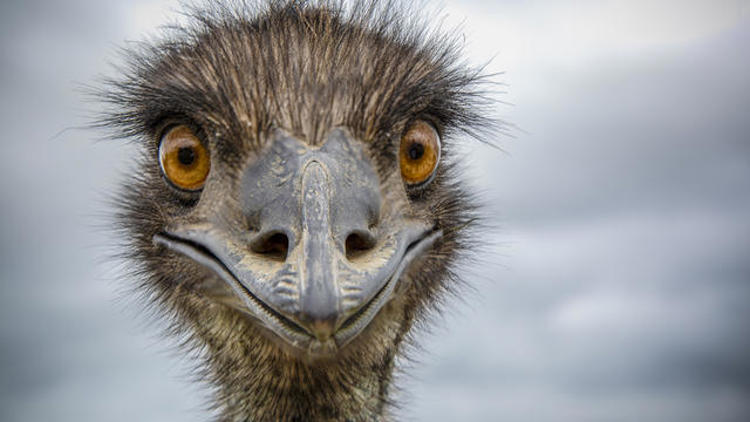HORRY COUNTY, S.C. — Two more animals are on the loose in South Carolina as the state continues its search for fugitive monkeys that escaped a medical research facility in Beaufort County. But this time, it's two emus named Thelma and Louise that escaped about a three-hour drive north.
The Horry County Police Department wrote about the large missing birds Wednesday, saying, "We are not emu-sed."
"The department is aware of the reported emus and we have made contact with the owner. We are working to aid the owner in the effort to locate and capture the animals," the Facebook post says. "There is no risk to the community associated with the emus at this time."
When asked by CBS News on Friday morning, police said they did not have an update about the missing birds and that any additional information would be posted online.
Sam Morace, the owner of the birds, told CBS News on Friday that the emus are named Thelma and Louise and that they have yet to be captured. "They decided they wanted to hop the fence when we were trying to grab one of them to move her to another paddock and well she didn't like that," she said in a message. "So she living the wild life, well both of them are."
Morace posted in a community group Tuesday saying that the birds got loose three months ago.
"They are feral and not trained like the ones we have at the house," Morace wrote. "Local law enforcement has already been at my house, we are trying to get a tranquilizer approved so we can bring them home. Thank you for all the concerns and questions. But if the emus were that easy to catch they would be home already."
The large, flightless creatures are the second-largest living bird, with an average height of more than 5 1/2 feet. Females, like the ones that escaped in South Carolina, can weigh more than 130 pounds. The animals are not native to the United States and only naturally reside in Australia.
Morace's Facebook post drew significant attention from community members, with one person suggesting that herding dogs could help. But Morace said that one of the emus had been attacked by three wild dogs before and that the bird managed to kill them before they could kill it.
"If your dogs try and attack her she will fight back. But she's just not randomly going to go to anyone or any animal," Morace said, saying elsewhere in the post that the bird is "more scared of you than you are of her."
Some community members said they had spotted the bird.
"I was pretty shocked and so was the wife," one person commented. "Like is that an emu next to the fire station? I turned around to take a picture and it was gone already!"
The news of the fugitive emus comes days after the escape of another batch of animals — 43 monkeys. They deserted the site after a caretaker failed to secure their enclosure gate. Thirty-two rhesus macaque primates had been recaptured after they broke out of the Alpha Genesis research facility in Yemassee.



